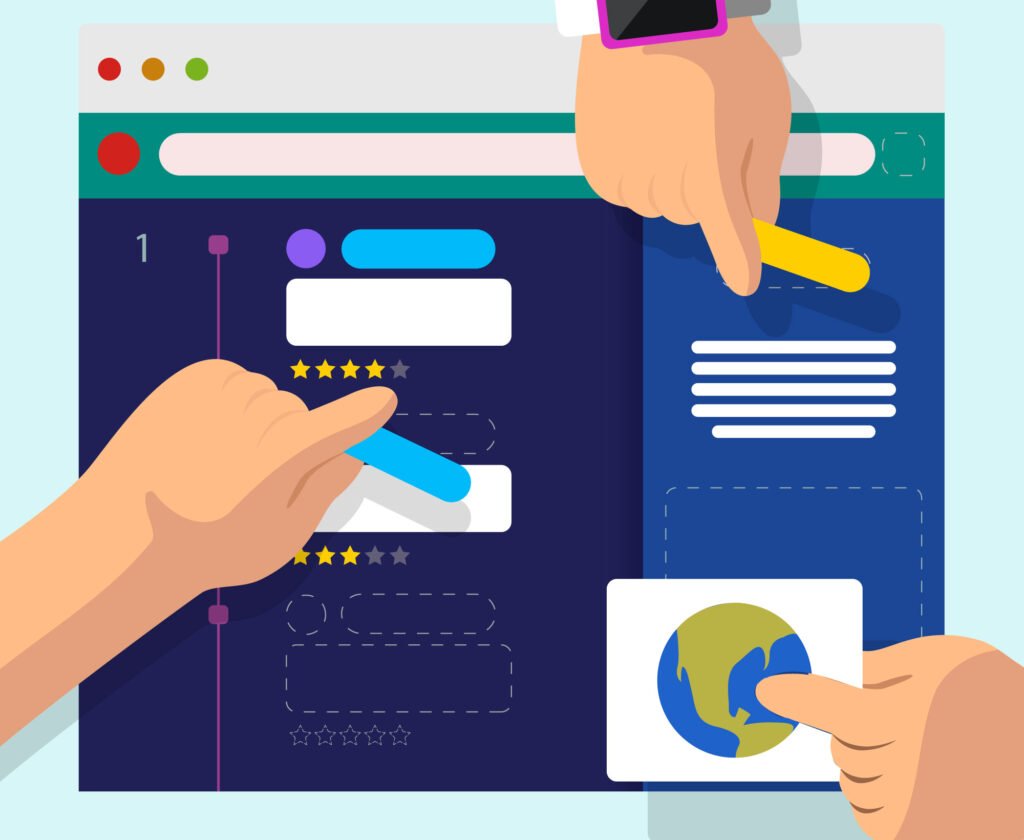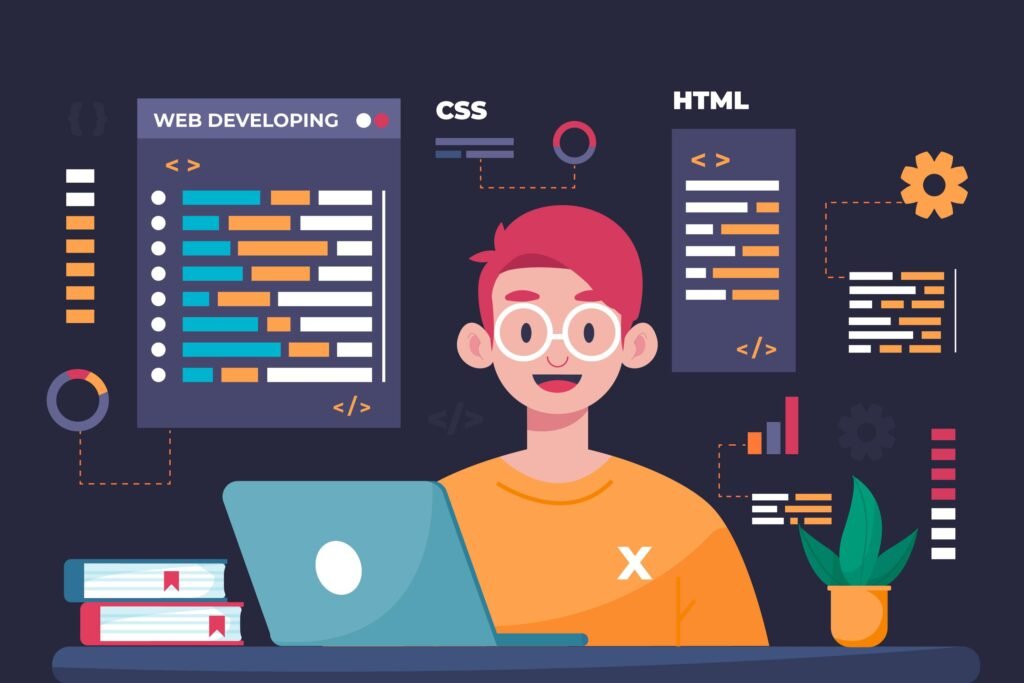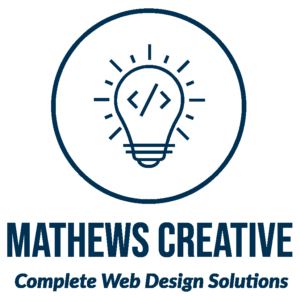In today’s digital age, having a strong online presence is essential for businesses, freelancers, and even hobbyists. Your website is usually the first point of contact with potential customers or readers. Its design can significantly influence their impression of you or your brand.
The decision of whether to use a website builder or hire a web designer is crucial, and each option has its pros and cons. As a small business owner, affordable web design for your small business becomes even more crucial. This article will explore these two approaches in detail to help you make an informed decision.
Content Overview

Website Builders: An Overview
What Are Website Builders?
Website builders are online tools or platforms that allow users to create websites without needing to write code. They offer templates and drag-and-drop features, this makes the design process intuitive and user-friendly. Some popular website builders include Wix, Squarespace, Weebly, and WordPress.com.
Website builders typically offer an array of templates and pre-designed layouts that users can customize. They also provide various built-in features and plugins that enhance functionality. They have features like SEO tools, e-commerce options, and social media integration. This makes them an attractive choice for individuals and small businesses looking for a quick and affordable web solution.
Pros of Website Builders
1. Ease of Use
One of the most significant advantages of website builders is their ease of use. Website builders cater to people with little to no technical expertise. The drag-and-drop interface lets you place text, images, and videos exactly where you want with just a few clicks. This simplicity lets users create a professional-looking website without needing to understand complex coding or design principles.
2. Cost-Effective
Website builders are generally more affordable than hiring a professional web designer. Most platforms offer various pricing plans, including free versions with basic features and premium plans with advanced functionalities. This makes them accessible to individuals and small businesses with limited budgets. Additionally, many website builders provide free trials, allowing users to test the platform before committing to a paid plan.
3. Quick Setup
With a website builder, you can have your website up and running in a matter of hours, if not minutes. The pre-designed templates and easy-to-use tools mean that you don’t have to spend weeks or months on the development process. This is especially useful for people who need to quickly create an online presence. Businesses who are planning for an event, product launch, or seasonal promotion.
4. No Technical Skills Required
Website Builders usually don’t require you to know how to code or have any technical background to use them. This is helpful for those who just want to create content but don’t want to deal with the technical aspects of web design. Most website builders offer user-friendly interfaces and guided tutorials. This makes it easy for beginners to create a functional and attractive website.
5. Integrated Features
Most website builders come with a variety of integrated features. Features like SEO tools, e-commerce capabilities, and social media integration. This can save you time and effort as you don’t need to search for and install third-party plugins or extensions. These built-in features often include essential tools for analytics, email marketing, and customer management.
6. Regular Updates and Maintenance
Website builders regularly update their platforms to ensure security, add new features, and improve performance. This means you don’t have to worry about keeping your website up-to-date or dealing with compatibility issues. The platform providers handle all technical maintenance, allowing you to focus on your content and business operations.
Cons of Website Builders
1. Limited Customization
While website builders offer a range of templates and customization options, they can be somewhat restrictive. If your vision for your website falls outside the capabilities of the builder, you may find the limitations frustrating. Advanced customization often requires knowledge of coding, which contradicts the primary advantage of using a website builder.
2. Generic Designs
Since website builders use templates, there’s a chance that your website may look similar to many others. This can make it challenging to create a unique brand identity. While you can customize templates to some extent, achieving a truly unique design may be difficult. Especially if many other users have chosen the same template.
3. Scaling Issues
As your business grows, the features and capabilities of a website builder may no longer be sufficient. Migrating to a more robust platform or a custom-built website can be complicated and time-consuming. People generally use website builders for smaller websites. They may struggle to handle large volumes of traffic or extensive e-commerce operations.
4. Dependence on the Platform
Using a website builder means that you are dependent on the platform’s stability and policies. If the platform experiences downtime or changes its terms of service, it could impact your website. Additionally, if the provider goes out of business, you may need to rebuild your website on a different platform. This can be a significant inconvenience.
5. Limited SEO Capabilities
SEO is short for “Search Engine Optimization”, this helps you rank better on search engines. Website builders usually only offer basic SEO tools. They may not provide the advanced SEO functionalities needed to compete in highly competitive markets. You can optimize custom-built websites more extensively for search engine visibility and search rankings, giving them an edge.

Hiring a Web Designer: An Overview
What Does a Web Designer Do?
A web designer is a professional who specializes in creating visually appealing and user-friendly websites. They can work alone as freelancers or be part of a web design agency. Web designers typically have expertise in various design software and coding languages. This allows them to create custom websites tailored to their clients’ needs.
Web designers often collaborate with clients to understand their goals, target audience, and brand identity. They use this information to create a unique design that aligns with the client’s vision and business objectives. This personalized approach can result in a more effective and engaging website.
Pros of Hiring a Web Designer
1. Customization
One of the main benefits of hiring a web designer is the ability to create a fully customized website. A professional designer can bring your unique vision to life, ensuring that your website stands out from the competition. Custom designs can include distinct branding elements, original layouts, and advanced features. This may not be achievable with regular website builder templates.
2. Professional Quality
Web designers have the skills and experience to create high-quality, professional websites. They can ensure that your website is visually appealing, user-friendly, and optimized for search engines. This can improve your online presence and credibility. Professional web designers are also adept at creating responsive designs that work seamlessly across different devices and screen sizes.
3. Scaling
A custom-built website can be easily scaled to accommodate the growth of your business. A web designer can build a website that evolves with your needs. This includes adding new features, expanding your product line, or integrating with other platforms. This ability to scale ensures that your website remains functional and relevant as your business grows and changes.
4. Ongoing Support
Many web designers offer ongoing support and maintenance services. This means that you have a professional to turn to if you encounter any issues or need updates in the future. Ongoing support can include regular updates, security monitoring, and troubleshooting. Ongoing support ensures that your website remains secure and up-to-date.
5. Unique Design
A web designer can create a unique design that reflects your brand’s identity and values. This can help you make a lasting impression on your visitors and set you apart from your competitors. Custom designs can include specific branding elements like logos, colors, and fonts. These elements enhance your brand’s identity and make your website memorable.
6. Advanced Functionality
Web designers can implement advanced functionalities that are not available through standard website builders. This can include custom forms, interactive features, complex navigation structures, and integration with third-party services. Advanced functionalities can enhance the user experience and provide additional value to your visitors.
Cons of Hiring a Web Designer
1. Higher Cost
Hiring a web designer is generally more expensive than using a website builder. The cost can vary widely depending on the designer’s experience and the complexity of the project. For small businesses or individuals with limited budgets, this may be a significant drawback. Investing in a professionally designed website can lead to better user engagement and higher conversion rates.
2. Longer Development Time
Creating a custom website takes time and the process involves multiple stages, including planning, design, development, and testing. This means that it can take several weeks or even months before your website is ready to launch. Although the end product is often worth the wait, the longer development time can be a drawback for those who need a website quickly.
3. Finding the Right Designer
Finding the right web designer can be challenging. Choosing someone who understands your vision and has the skills to execute it effectively is essential. This often involves reviewing portfolios, conducting interviews, and checking references, which can be time-consuming. Additionally, working with a designer requires clear communication and collaboration to ensure that the final product meets your expectations.
4. Communication Challenges
Working with a web designer requires clear and effective communication. Misunderstandings or miscommunications can lead to delays and additional costs. Establishing a good working relationship and maintaining open lines of communication throughout the project is curcial. Regular check-ins and feedback sessions can help ensure that the project stays on track and aligns with your vision.
5. Dependence on the Designer
Hiring a web designer makes you dependent on that individual or agency for future updates and maintenance. If the designer is not available then finding a new designer can be challenging. Establishing a long-term relationship with a reliable designer or web design company can mitigate this risk.

Making the Decision: Factors to Consider
Budget
Your budget is likely one of the most significant factors in your decision. Website builders are more affordable upfront, making them a good option for those with limited funds. However, if you have the budget for it, investing in a custom-designed website can pay off in the long run. Consider the total cost of ownership, including any ongoing maintenance and update fees, when evaluating your options.
Time
Consider how quickly you need your website up and running. A website builder would be the appropriate choice if you require a website quickly. But, If you have more time and want a custom solution, hiring a web designer might be worth the wait. Evaluate your project timeline and any external deadlines that may influence your decision.
Technical Skills
Evaluate your technical skills and willingness to learn. Website builders are user-friendly and require little to no technical knowledge. While managing a custom website might require technical skills or the need to hire someone for maintenance. Consider whether you have the resources and expertise to manage a custom-built website.
Customization Needs
If you need advanced features and a unique design, a web designer is the better choice. If you’re okay with a more generic design and standard features, a website builder will suffice. Evaluate the specific functionalities and design elements that are critical to your website’s success.
Customization Needs
If you need advanced features and a unique design, a web designer is the better choice. If you’re okay with a more generic design and standard features, a website builder will suffice. Evaluate the specific functionalities and design elements that are critical to your website’s success.
Long-Term Goals
Consider your long-term goals for your website. If you plan to scale your business and add new features over time, a custom-designed website may be a better investment.
When you are starting your business, website builders may be a good choice. But website builders may lack flexibility as your business grows. Consider how your website will need to evolve to support your long-term business objectives.
Brand Identity
Your website should reflect your brand’s identity. If having a unique and professional design is crucial for your brand, hiring a web designer is the best option. A custom design can help you create a strong brand presence and make a lasting impression on your visitors. Consider how your website’s design and functionality will contribute to your overall brand strategy.

Case Studies: Real-World Examples
Website Builder Success Story
Sarah is a freelance graphic designer who needed a portfolio website to showcase her work. With a limited budget and no coding skills, she chose to use Wix to build her website. The drag-and-drop interface allowed her to create a visually appealing site that highlighted her portfolio. She was able to launch her website in just a few days, and the built-in SEO tools helped her attract new clients.
For Sarah, a website builder was the perfect solution.
Web Designer Success Story
John owns a growing e-commerce business. He wanted a website that could handle a large inventory, multiple payment options, and a seamless user experience. He hired a professional web designer to create a custom website tailored to his needs.
The designer built a scalable e-commerce platform with a unique design that reflected John’s brand. The custom features and professional quality of the website helped John increase his sales and expand his business.
For John, hiring a web designer was the best investment.
Nonprofit Organization Case Study
The Green Earth Foundation, a nonprofit organization focused on environmental conservation. They needed a website to promote their initiatives, accept donations, and share resources with their community.
They opted to hire a web designer to create a custom website that reflected their mission and values. The designer developed an engaging and interactive site. It had features such as a donation portal, event calendar, and educational blog.
The custom design and advanced functionalities helped the foundation increase donations and expand their reach.
Small Business Web Design Case Study
Emily runs a small bakery and wanted to create a website to attract local customers and showcase her products. With a limited budget and no technical skills, she decided to use Squarespace to build her website.
The platform’s user-friendly interface and beautiful templates allowed her to create a professional-looking website quickly. Emily integrated an online ordering system and connected her social media accounts. This helped her increase sales and build a loyal customer base.
For Emily, a website builder was the ideal solution.

Conclusion
Choosing between a website builder and a web designer depends on your needs, budget, and long-term goals.
Website builders offer an affordable and user-friendly solution. A website builder is for those who need a quick and easy way to create a website. They are ideal for individuals, small businesses, and those with limited technical skills. However, If you have a bigger budget and more complex needs, a web designer offers better customization and quality.
Carefully weigh the pros and cons of each option and assess your specific needs to make a well-informed decision. This will aid in creating a website that accurately reflects your brand and aligns with your objectives.
Whether you choose a website builder or a web designer, what is important is to have a well-designed website. A website that enhances your online presence and helps you achieve your objectives. Take the time to assess your needs, explore your options, and invest in a solution that aligns with your vision and business strategy.
If you are a small business looking for web design service please consider Mathews Creative




